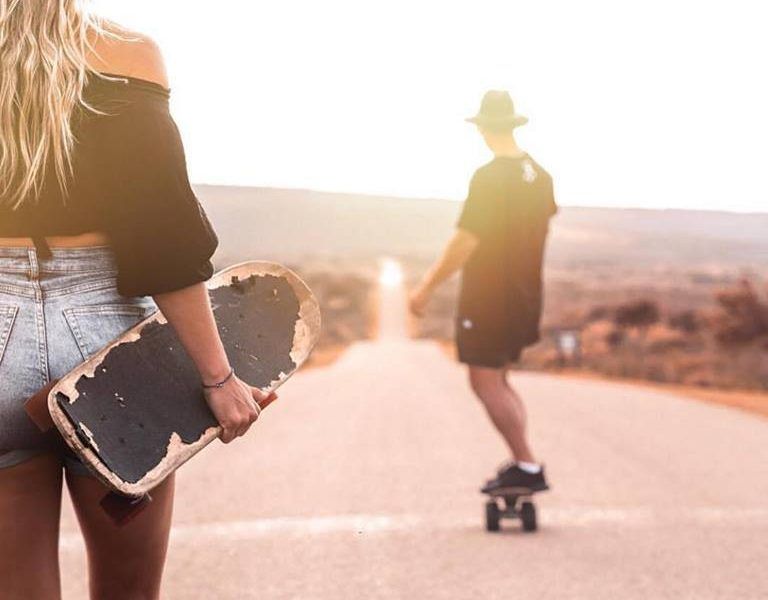From fast fashion (the second dirtiest industry in the world, behind oil), to the 12.3 million tons of plastic in our oceans, to the airline fuel miles we have all racked up. Today it’s impossible to ignore: we’re failing our planet, with a dire forecast for the future if we don’t start living a more sustainable lifestyle.
Caring about the environment is no longer on the fringe: green is the new black. And it’s not a nice-to-have; it’s an urgent race to minimise our impact. Now we’ve flicked the switch, that consciousness is hard to turn off. It’s an open challenge to minimise consumption, downsize, reuse, and reconnect with our environment.
We’ve written a practical guide to living a more sustainable lifestyle (without compromising the things you love).
When you travel
The number of people considering a form of sustainable travel as an alternative to their traditional getaway has exploded in recent years. We are becoming far more aware of the personal and environmental benefits of eco-travel, and the impact traditional travel has on our environment.
According to a Booking.com survey, 86% of global travellers would take part in activities that counteract the environmental impact of their trip. Whether you are actively taking part in forest regeneration or ocean cleaning projects, or simply reconnecting with the local environment by booking eco-friendly accommodation – you can play a small part in shaping our future.
Off-grid getaways
Minimising your footprint through secluded wilderness experiences is another growing trend among those looking to reconnect with their environment. Riparide’s mission is simple: book an outdoor adventure and live life to the fullest. They offer unique accommodation, experiences, vehicles and outdoor equipment listed by the owners themselves. The coolest part of their offering is the ability to browse listed stories, which are visual adventure itineraries centred around a featured listing. Each story offers a unique, local’s perspective for a truely immersive weekend in the wilderness.
UnYoked believe that there’s too much concrete and too many commitments in the world already, so we should all go wander in the woods. We totally dig that philosophy. Their minimalist cabins allow for a greater connection to the landscape, so guests can truly feel a part of nature.
Jaunt is a bespoke car rental company, offering unique journeys to explore regional Australia in iconic cars up-cycled into electric vehicles. They believe in creating ‘beautiful adventures’ by catering to the growing demand for tourism that’s more sustainable and attuned to local culture.
If getting lost in the wilderness isn’t your thing, there are plenty of luxe accomodation options that satisfy our criteria for living a sustainable lifestyle. A weekend here will leave you feeling satisfied you’re doing no harm, and probably some good too.
Read more: Eco-Friendly Cottages For A Luxe Weekend Among Nature
Go slow & shift your awareness
The philosophy of going slow is all about shifting our awareness from mass-production, to sustainably crafted brands that are made responsibly.
Patagonia, Outland Denim and Will & Bear are other online retailers committed to supplying a range of ethical and sustainable clothing and accessories. Thread Harvest also gives you the option you to shop according to the values that matter to you most, with a portion of the proceeds from each sale supporting worthy causes.
You can implement the go slow philosophy in your day-to-day living in other small ways: always read the label on products you buy, what is the story behind the brand? What packaging do they use? How about the ingredients? Try to support independent brands for your must-have items, go ahead and plant that herb garden and tend to it daily or grow your own vegetables if you have space. Urban Growers design, create and maintain edible gardens and urban rooftop farms. They wrote a blueprint for living the good life in the city – how to grow the easiest food plants in small spaces and recipes to make the most of them.
Shop local
Farm to table dining isn’t a new concept, but it’s never been more in demand. The trend isn’t about to disappear either. The benefit of the farm to table movement is twofold: the concept focuses on producing food locally and organically which is not only better for you, but good for the environment.
Read more: Check out our list of Top Regional Farm to Table Dining Experiences To Try.
Aside from the obvious facts that locally produced food tastes better — there are other elements to consider. Local produce reduces the use of fossil fuels by eliminating lengthy supply chains (meaning the food has less distance to travel). According to Food Revolution, with the growing consumer demand for local produce, inspired chefs and food producers are increasingly likely to enter the marketplace by developing turning unused space into thriving urban gardens.
Rather than hitting a supermarket for your shopping, grab your canvas bag, and hit your local markets. You’re not only getting incidental exercise, you’re also building strong links that will support and sustain your community.
If you don’t have markets nearby, see if there’s a local butcher, baker and small grocer you can befriend. Look for independent owners in your neighbourhood (not just food, but homewares stores also) and ask about their brand story.
Reduce your impact
The next step to living a sustainable lifestyle is making an effort to re-equip without plastics. Check out these simple hacks for going plastic free. If grabbing a takeaway in the morning is part of your routine, make sure you’re toting around your own coffee mug or cup. Buy bamboo or metal straws for your juices and smoothies. Invest in a BPA-free water bottle that is the right size to carry around with you all day.
Pathwater is one company that’s joined the plastic-free movement with it’s reusable, aluminium water bottles. As the company grows, they aim to maintain a sustainable model by sourcing all water locally to minimise the impact of CO2 emissions from transporting water.
When it comes to food scraps, you could implement a composting system. And when it comes to your daily coffee, swap your takeaway cup for a reusable keep cup or go all out with a ceramic cup from Pottery For The Planet. Some eco-conscious cafes might even reward you with a sweet discount for bringing your own cup.
Instead of just throwing out unwanted items in the trash, think about how you can recycle or up-cycle to minimise your environmental impact. This could be as simple as putting the right items in the recycling bin, gifting clothes to a friend, or passing on your pre-loved clothes to an op shop.
Join the movement
The good news is that eco-consciousness isn’t an ideal that requires a radical lifestyle change. We’re here to tell you that it’s about the small steps, each one shifting our awareness one inch at a time. When you combine your awareness with the collective efforts of 10, 100 or 1000 other changemakers, that’s when our sustainable action starts to accelerate.
If you have the opportunity, get out and support one of the sustainability or conscious living events that will re-emerge in our post-covid world. These events showcase modern solutions to ecological and social challenges, empowering everyone to be part of changing the planet for the better. All it takes is your attendance for the movement to spread.
Shifting your awareness
It can be easy to feel overwhelmed by the idea of living a more sustainable lifestyle, and either not know where to start, or not feel like we can make a difference. There’s no need to feel like you have to forgo modern conveniences. Rather, It’s the little things that count. Each one shifting our awareness, inch by inch, towards a greener future.
But living with a smaller environmental footprint doesn’t mean you have to buy a Tesla – although that would help, or give up beef (completely). But it does mean making some choices about the kind of world you want to leave behind.
Spending more time connecting with the environment, and the people around you will give you time to appreciate the contribution you’re making to reduce your impact. Which is actually a pretty cool thing.
Need more inspiration?
This Weekend is a lifestyle guide for sustainably-minded folk — covering sustainable living tips, travel, dining, brands, wellness, and more. Our platform promotes living a sustainable lifestyle without compromising the things that matter most.






